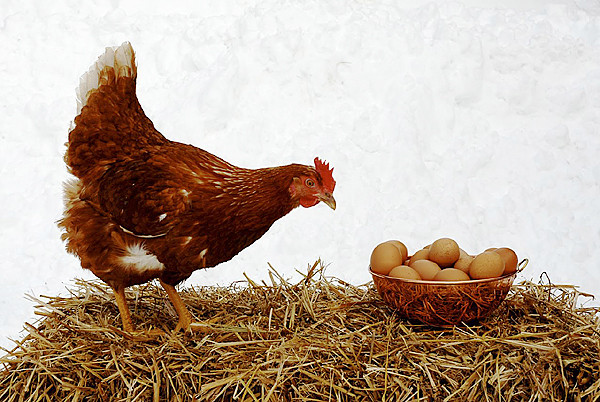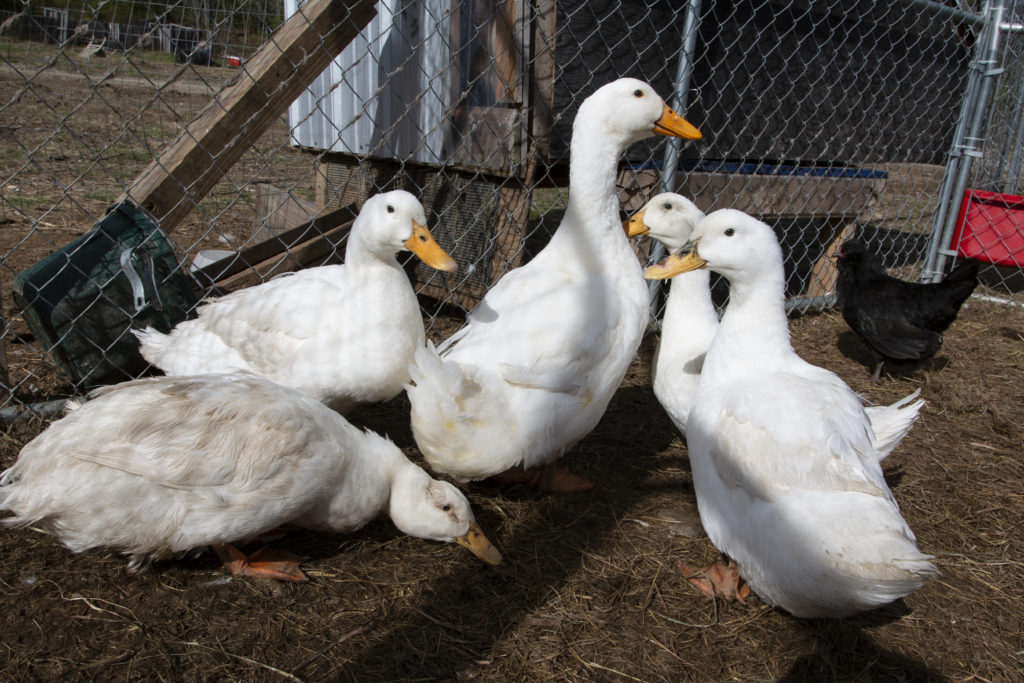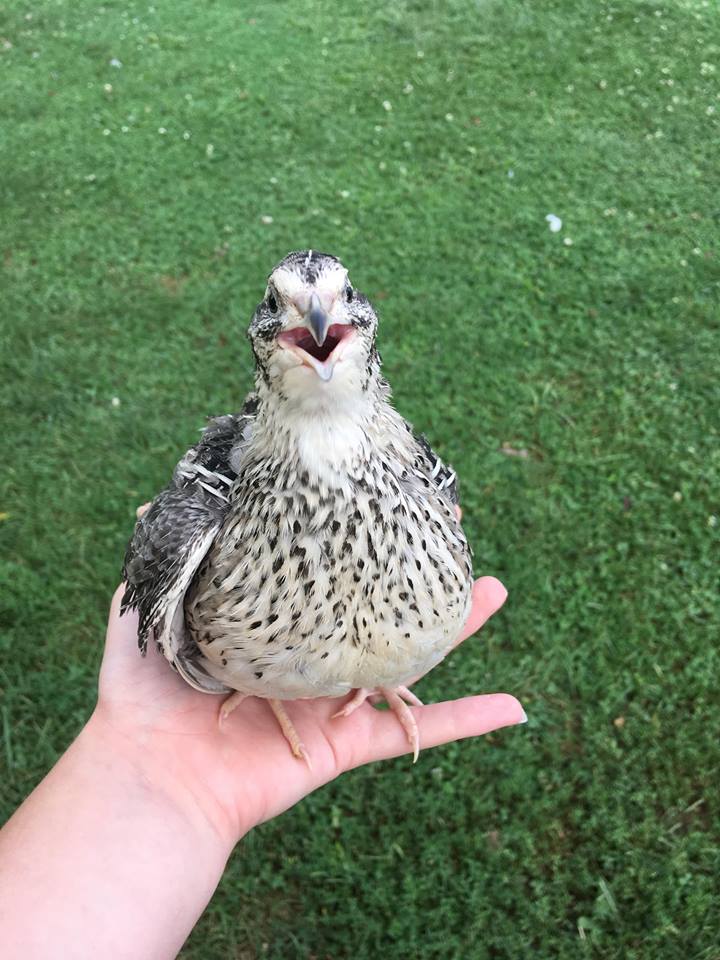Best egg layers for your backyard poultry flock

Whether you are adding chickens, ducks, quails or geese to your backyard flock, you may have eggs on the brain.
When considering which birds are best for eggs, there are a few aspects to consider: how big the eggs are, how often they lay eggs and, for some Instagram-minded homesteaders, how colorful the eggs they lay are. In general, when you are buying a bird, the seller or other online catalogs should have information about the breed, including how much and how often they typically lay.
“There should be egg production information on every breed, and you can look that up,” said John Metzer, owner of Metzer Farms in Gonzales, California.
If you are looking to raise your backyard birds for eggs, here are the breeds our experts recommend.
Chickens
For a bounty of farm fresh eggs almost every morning, two types of purebred chickens reign above the rest.
- Golden Buff
- White Leghorn
- Lakeshore Egger
- Jersey Giant
- Legbar
- Easter Egger
- Welsummer
- Black Copper Maran
- Golden Comet
- Rhode Island Red
- Plymouth Rock
“White Leghorns and Golden Buffs are the top producers of white and brown eggs, laying more than 300 eggs [per] year,” said Meghan Howard, website manager at Meyer Hatchery in Polk, Ohio.
These laying superstars can be outpaced by hybrid breeds that have been specially bred to be good layers, like the Golden Comet which can lay a whopping 330 eggs each year. Some heritage breeds are also prolific layers.
“The Plymouth Rocks and Rhode Island Reds are heritage breeds and exceptional layers,” Howard said. “[They are] definitely homestead favorites!”
Howard said that, while they tend to produce less, Jersey Giants lay the largest eggs.
“These are your Jumbo Brown Eggs you typically see in the grocery store,” Howard said.
Some homesteaders enjoy the novelty of colorful chicken eggs. In that case, Howard recommended Legbars for light blue eggs; Lakeshore Eggers, a Meyer Hatchery exclusive, for olive green, green and sky blue eggs; Easter Eggers for the occasional pink egg; Welsummers for mahogany speckled eggs; or Black Copper Marans for dark brown eggs.
Overall, Howard recommended a trifecta of chickens for a beautiful basket: White Leghorn, Golden Buff and Lakeshore Egger.
“If you are focused on egg production, the top picks are definitely the White Leghorn, Golden Buffs and Lakeshore Eggers,” she said. “These three make a beautiful and productive market basket. The birds themselves are also on the smaller side, so they don’t eat as much as your bigger birds.”
If you want to increase the value and flavor or your eggs, Howard said what you feed your chickens matters just as much as the chicken you choose.
“Nutritional value of the egg is not in the breed or eggshell color, but rather, what they eat and how they are raised,” Howard said. “Free range is best!”
Ducks

- Khaki Campbell
- Golden 300
- White Layer
- Pekin
Duck eggs are larger than chicken eggs, and often more flavorful. If you are picking a duck for eggs, the Khaki Campbell is a good choice for a purebred breed.
“The Khaki Campbell, for a purebred breed, lays the most eggs, but the size is a little smaller than some others,” Metzer said.
Buyer, beware: Khaki Campbells can have challenging personalities.
“They are a little bit more nervous than other breeds, but nervousness is a fickle thing,” Metzer said. “Sometimes you’ll have a flock of birds that are very nervous and have another that aren’t nervous.”
Metzer Farms has also developed hybrid strains of ducks especially for laying eggs: the Golden 300 and the White Layer, which can lay about 290 eggs and 245 eggs per year, respectively, compared to the Khaki Campbell’s usual annual 240 eggs.
If you are looking for large eggs, the Pekin duck is the best option.
Some farmers enjoy having Muscovy — which, though they are often classified with ducks, are actually more closely related to geese — but Metzer said that in terms of egg production, they are not the best choice.
“Compared to other duck breeds, [Muscovy] are average,” Metzer said. “They’re very good at hatching their own eggs and raising their own, but I definitely would not have muscovies if my only interest was eggs.”
Geese
- White Chinese
- Embden
Geese lay far less frequently than other backyard birds and are not often raised for egg production. If you are a crafter or a bold culinary vanguard that is interested in goose eggs, though, Metzer recommended the White Chinese and Embden geese.
“They’re probably more prolific layers,” he said.
Your choice will ultimately come down to the size of the egg you want.
“The White Chinese probably has the smallest eggs, but they probably lay the most,” Metzer said. “The Embden eggs are significantly larger for those that want a larger goose egg.”
Metzer said that goose eggs are all white, so those looking for colorful goose eggs are generally out of luck.
Quails

- Pharaoh Coturnix
- Jumbo Coturnix
Different types of quail have their advantages, but M Segrist, owner of WoodBottom Quail Farms in Bethel, Ohio, said Coturnix quail are best for eggs.
“If light is kept on the birds, they will lay almost every day for 2 to 4 years, even throughout the winter months when we have less daylight,” she said.
Quail eggs are considered a cultural delicacy delicacy and a superfood.
“The eggs are packed full of minerals and vitamins,” Segrist said. “One quail egg has the same nutritional value as three chicken eggs, but with less calories.”
Of the different varieties of Coturnix quail, Segrist recommended the Pharaoh Coturnix, which can lay up to 300 eggs a year.
“The Pharaoh Coturnix are most frequently found in backyard flocks,” she said.
Jenna Greene, owner of Myshire Farm in Miamisburg, Ohio, recommended the Jumbo Brown variety of Coturnix quail for slightly larger eggs.
“These Jumbo [Brown Coturnix] quail do lay a slightly larger egg, at around 14 grams,” she said.
If you are looking for colored quail eggs, Greene said that there is a rare recessive mutation in some Coturnix quail called celadon that allows the quail to produce beautiful teal eggs. You can purchase celadon eggs for hatching at various specialty breeders.
By choosing any of these backyard bird breeds, you will have more than your share of farm fresh eggs and reusable eggshells.
